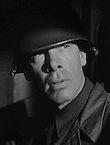Mike Dubost
Posts: 273
Joined: 8/24/2008
From: Sacramento, CA
Status: offline

|
quote:
ORIGINAL: henri51
quote:
ORIGINAL: Mike Dubost
Since nobody else has responded to this bit of propaganda *, I will take up the guantlet.
The closest thing to the terms Henri has quoted that I am able to find are a portion of the terms of the proposed Basis of Agreement of 26Nov1941. Since this document did not contain any explicit or implicit threat of war if Japan did not agree by a set deadline, it cannot be called an ultimatum.
This question has remained controversial (I am not commenting on the more controversial question of whether the USA knew that Japan was going to attack Pearl Harbor), but it seems obvious to me that the US knew that there would be war with japan (which is why the Fleet was moved from San Diego to Pearl Harbor), and Roosevelt knew that the population would not accept war unless the Japanese attacked first. I am not passing judgment on whether this was good or bad, only on the propaganda that the Japanese attack on Pearl Harbor was a totally unprovoked surprise.
Historian Sheldon Richman wrote "The final question — about the provocations — is less controversial. Even adulators of Roosevelt now concede that he lied the nation into war. He had to, they say, because the American people were too shortsighted to support intervention. Hitler had refused to attack the United States, despite provocation. So, the President had no choice but as Secretary of War Henry L. Stimson wrote in his diary on November 25, "to maneuver them [Japan] into the position of firing the first shot."
By then there had already been much maneuvering. It consisted of the systematic strangulation of Japan. For a nation like Japan, with no natural resources and a desperate need to import its necessities, this had to lead to war."
As for withdrawal of the tripartirte agreement, item 9 of the US ultimatum (called a memorandum by the US - whose terms the Japanese were told were not negotiable) is clear enough:
"9. Both Governments will agree that no agreement which either has
concluded with any third power or powers shall he interpreted by it in
such a way as to conflict with the fundamental purpose of this
agreement, the establishment and preservation of peace throughout the
Pacific area. "
"Agreeing" clearly means renouncing the Tripartite Pact on the part of japan.What else could it mean?
I am not a defender of Japanese imperialism, but after more than 60 years, isn't it time to drop the propaganda and see the US-Japanese conflict for what it was, the collision of two imperialisms.I hope that you are not going to claim that the US support of Chiang-Kai-Chek in China had the purpose of supporting democracy in China or that the US wanted the Japanese out of Malaysia so that the US could support democratic regimes there?
Henri
"Lie all you can, something will always remain" (Voltaire)
I admit that this is tangential (spelling?) to the original post, but I think an evolution of discussion is allowed.
Even in my first post on this discussion, I said that negotiations were probably futile. I believe that absent some major event (such as US entry into and preoccupation with the European conflict), the US and Japan were heading for war.
However, I dispute the notion that the US sought to provoke a war. The Stimson diary quote as given above could bear the interpretation that the FDR Administration wished to avoid war but if war came, they wanted Japan to fire the first shot. A quick Yahoo search did not turn up any online version of the diary to check the context. In general, I am wary about using sentence fragments without context as evidence.
It is my contention that the State Department knew there was a risk of war (I assume they listened to the US ambassador to Japan when he told them so), but they were willing to engage in what was later called "Brinksmanship".
The statement that the Basis of Agreement was presented as a "take it or leave it" is not relevant to the question of whether it was an ultimatum or not. An ultimatum is effectively a Declaration of War with an escape clause. For example, "... unless we heard from them by 11:00 that they were prepared at once to withdraw their troops from Poland a state of war would exist between us." It is a fact that neither the US nor Japan treated the Basis of Agreement as an ultimatum. Otherwise, why would the FDR Adminstration discuss the possibilty of a personal appeal the Emperor as Head of State, or the Japanese bother with the well-known message on 7Dec1941?
The oil embargo is an interesting situation, actually. It is one of the many cases in which US actions were undertaken for a mixture of high-minded and "realistic" reasons. The History of US Naval Operations quotes a poll showing significant support for the embargo before it's imposition. This was due to the public's desire to not subsidize and implicitly support what was perceived to be unwarranted Japanese agression against China. Do not underestimate the moralistic impulse in the US. At our best, it makes us strive to live up to some VERY lofty ideals.
As for the statement that we were not supporting democracy in China, I did not claim that. It was not generally claimed to be the case at the time, even. At most, it was claimed to be supporting self-determination. However, US support for China was in accordance with the traditional "Open Door" policy. The US did not want to have any power control China. In fact, you will note that the Basis of Agreement proposed the MUTUAL renunciation of extra-territoriality. I cannot be proud of the US failure to unilaterally renounce it, but at least the US did not make claims for "concessions" where Chinese law did not run.
By the way, for your reference to Japanese out of Malaysia, did you mean Indo-China, or Siam?
Hard Sarge has already made my objection to calling Point 9 a renunciation of the Tripartite Pact. Honesty compells my to weaken my own case a bit, however, by noting that at the time (at least in Life Magazine), the Tripartite Pact was presented as being aimed against the US. I will point out that the language here sounds a bit like the "boilerplate" parts of an engineering services contract where they start talking about conflicts, conflict resolution, and "severability". It can be perceived differently, depending upon your incomming opiinion. I also will add that if the Tripartite Pact was incompatible with "the establishment and preservation of peace throughout the Pacific area", what does that do to your argument that Japan was provoked into war by a US ultimatum more than a year later?
Finally (yeah, at last, right?), I wish to take issue with the characterization of the US in 1941 as an imperialist nation. Not only did the US have no interest in aquisition of more colonies, the US was in the process of granting independence to the Phillipines.
In retrospect, my first post did have a bit too high a heat to light ratio. If the discussion becomes too OT, maybe we could continue by PM?
|
 Printable Version
Printable Version














 New Messages
New Messages No New Messages
No New Messages Hot Topic w/ New Messages
Hot Topic w/ New Messages Hot Topic w/o New Messages
Hot Topic w/o New Messages Locked w/ New Messages
Locked w/ New Messages Locked w/o New Messages
Locked w/o New Messages Post New Thread
Post New Thread